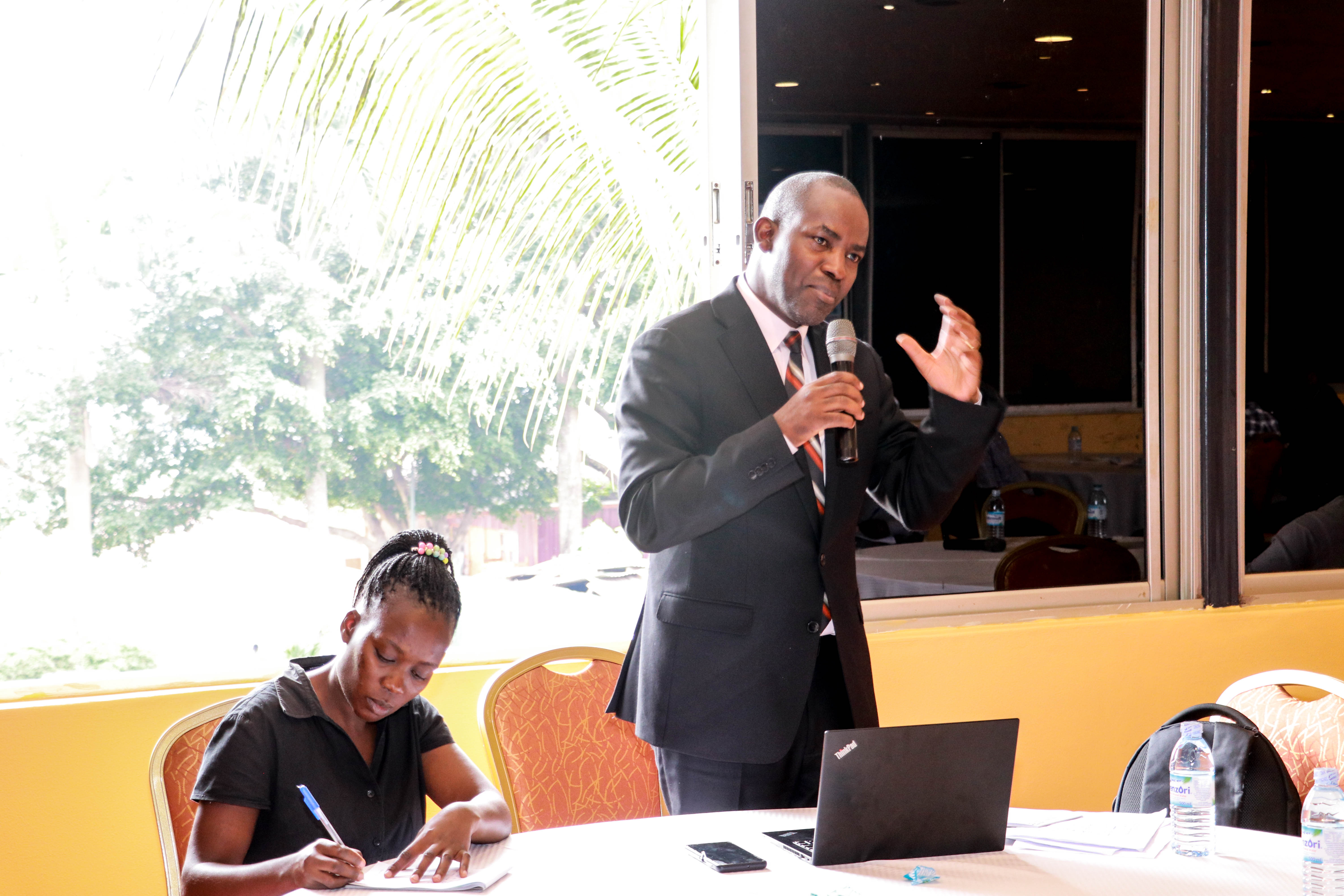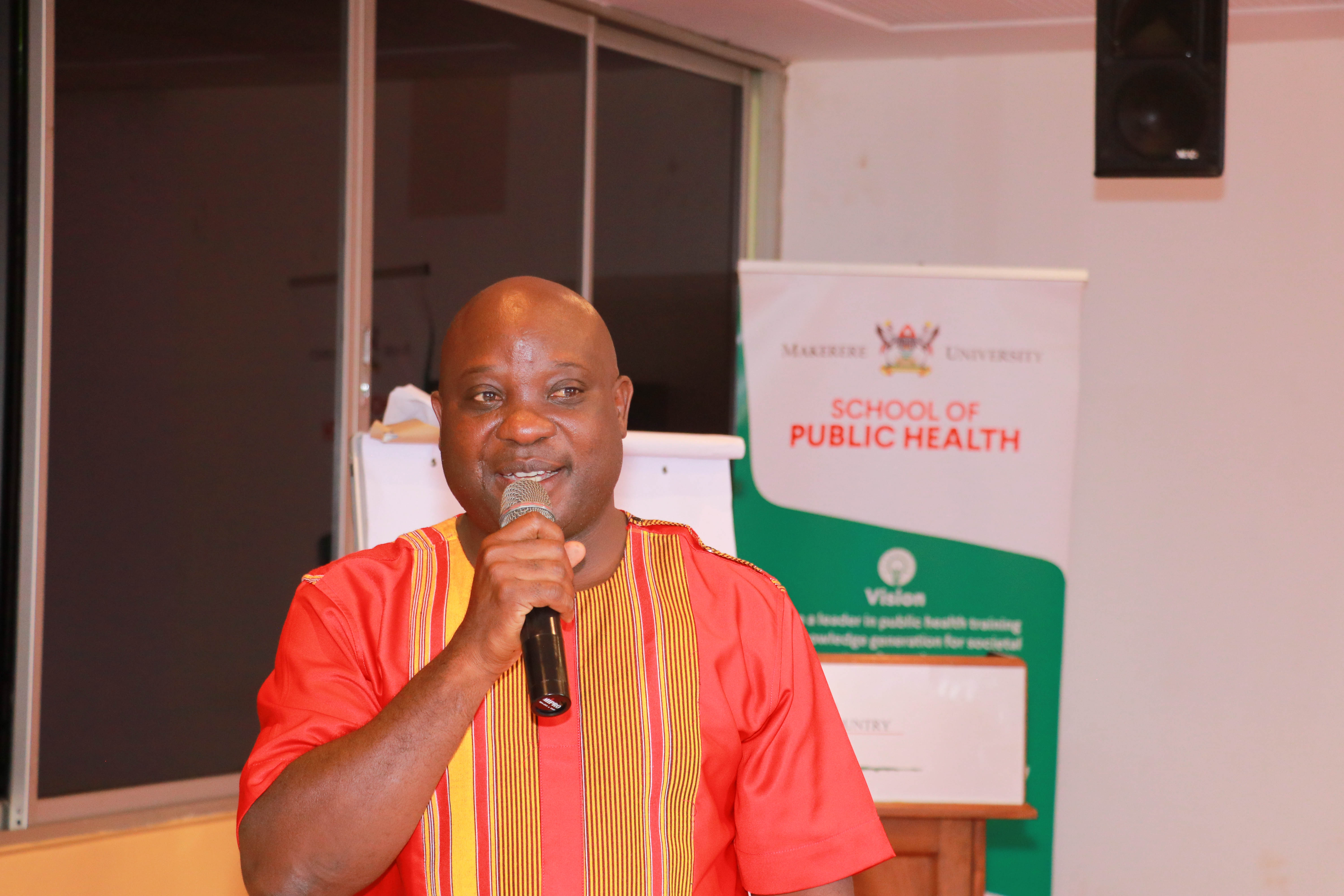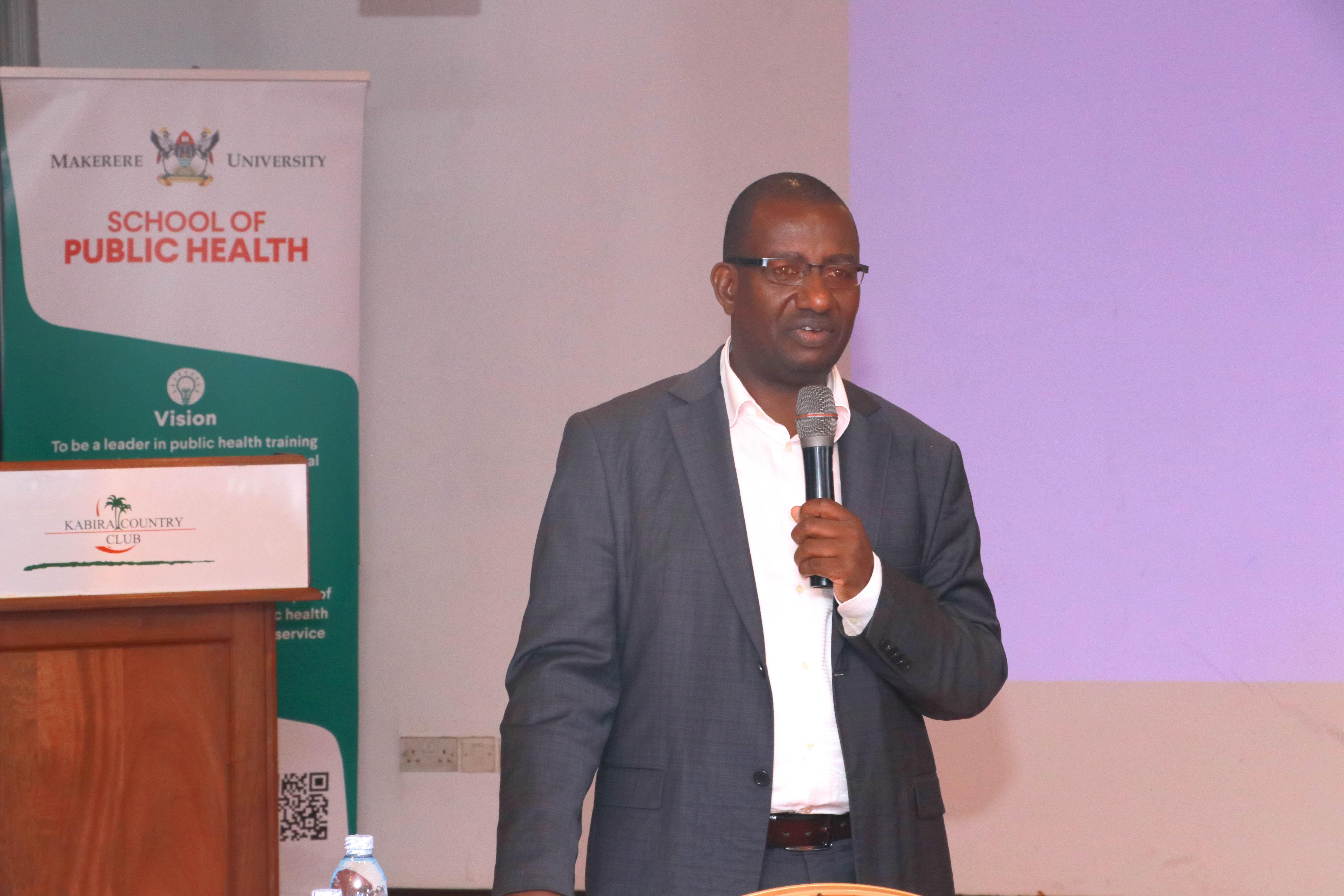
Makerere University School of Public Health (MakSPH) and University of Waterloo co-led research will study the impact of COVID-19 on employment, economic status and HIV risk and vulnerability among women living in urban informal settlements in two major cities (Kampala and Mbale) in Uganda using a participatory action research. According to the study design, researchers will conduct the study particularly in Kagugube in Kawempe Division and Kitintale, in Nakawa division in Kampala as well as Namakwekwe, in Northern Division and Namatala in Industrial Division in Mbale City.
This two-year research project funded by three partner organizations involved in Women RISE (IDRC, the Canadian Institutes of Health Research and the Social Sciences and Humanities Research Council) is implemented by MakSPH in Uganda AIDS Commission (UAC), and Afrislum Uganda. The evidence generated will inform inclusive, sustainable and equitable gender transformative solutions for COVID-19 recovery and future health emergencies.
On Wednesday December 7, 2022 the project team led by Susan Babirye, a Research Fellow in the Department of Health Policy Planning and Management at MakSPH engaged with local leaders in Nakawa and Kawempe divisions at Kabira Country Club in a research co-Design meeting during which local leaders praised Makerere University for the research that would directly involve and benefit people in their settings.

Dr. Daniel Byamukama, the Head of HIV Prevention at the Uganda AIDs Commission -UAC says as the leaders of the HIV response, UAC are pleased with the partnership with MakSPH as a sure way to translate research findings into policies that impact the HIV response.
“We were happy to join in partnership with them [MakSPH] and KCCA [Kampala Capital City Authority] because as you all know, the COVID pandemic brought some confusion. As we speak now, the new HIV infections that had been reducing since 2010—in fact—we were projecting a consistent reduction in HIV infections but last year infections went up. We became concerned with how the COVID pandemic is going to affect our HIV response in the immediate term and in the long term,” Dr. Byamukama observes.

Dr. Byamukama observed that this study contributes to UAC’s research agenda—for HIV and AIDS that highlights our key concerns in the HIV response and what the unanswered questions are.
He urged researchers to endeavor to look at the UAC’s research agenda, and partner to ensure their research is translated into policy. According to Dr. Byamukama, the Women rise study is very timely and relevant since it targets urban informal settlements.
“HIV is a problem of the poor—so poor women in the city, and other urban settings are at risk. Rural prevalence is 3.5% in men, 6.1% in women whereas the urban prevalence is 4.3% in men, and 9.0% in women. There is a big gap in terms of prevention and so the focus of addressing the needs of women is timely, because even now as we talk about these statistics, we know that most of these women are instead infected by men,” Dr. Byamukama said.
He further contends that the HIV prevalence among people with no education is 9.2%, 6.5% among people with primary education, 3.9% among people with secondary education, and 3.6% among people with post-secondary education.
“HIV is therefore a disease of the poor, a disease of the uneducated, but also with a much higher prevalence in women. So, this research is so timely and I thank you for the support you are going to give it. We look forward to a partnership with your guidance, and to engaging you along away as we make meaning of the findings of the study,” he said.
Shafiq Kawooya, founder member Afrislum Uganda, an indigenous urban-poor focused, non-profit organization, one of the implementing partners on this study said Afrislum Uganda has for long done work in slums and hoped that the partnership will leverage on the successes of the organization to have a successful project implementation. He appreciated the engagement of local leadership of the divisions in the two cities for allowing the project tow operate in their areas.

“When we first engaged you, we had come to seek administrative clearances, but there was a bit of skepticism. When we came for the inception meeting, we realized that we had already enlisted support from the stakeholders and in us as implementing partners and the rest of the researchers, we realized that this is the time. And it is even more so, more timely given the beneficiaries that we chose. It is timely because we chose the people that were most affected by COVID-19. Most affected in their livelihoods and ultimately their vulnerability to HIV,” says Kawooya.
His Worship, Paul Mugambe, the Mayor, Nakawa Division, hailed MakSPH and partners for joining hands to give hope to the local areas with solutions, and to answers to lingering questions. He observed that the world has not been the same since the advent of COVID in 2019.
“The world has turned upside down and there has been a paradigm shift. There are many questions, no answers, and no solutions to challenges, but there have been attempts to make interventions without much success because the interventions are not informed by research.
Therefore, I am proud of this intervention that is based on research. Many problems like domestic violence rates, HIV rates, poverty rates, school dropout rates, and crime rates have gone up because of loss of jobs due to the pandemic,” said Mugambe.

He stressed that local leadership have no doubts that the coming in of MakSPH and other partners to do research, and get empirical evidence from the ground, shall be able to recover from the post-COVID effects with positive interventions.
“Thank you for choosing Nakawa as one of the areas in which to do the research. My team and I will be actively participating and shall move with you on the way, and give you all the support we can to see that this succeeds. We can testify firsthand how important this engagement has been and you can tell from the word go that this research is going to be very successful because of engagement, and bringing stakeholders, local leaders, the Mayor and other technical people together,” said Mugambe before urging the researchers to share the findings upon completion of the study for implementation.

Dr. Christopher Oundo, representing the Director for Public Health & Environment at KCCA says the Director Public Health expressed support for the project and also gave some guidance on areas that need to be given attention, such as the mapping of the business communities that were mostly hit by the COVID-19 lockdowns.
“As we all know, there are communities, especially in our space of HIV/AIDS we would want to focus on; commercial sex workers and others. The question is, were they that significantly affected, and if so, did people change their jobs as a result? It could have been that the volume of clients went down but they remained in the same job. However, you find that there are some other categories of working-class people in Kampala who were forced to change the jobs they were doing, for example teachers from private schools who had to look for alternative means of survival,” said Dr. Oundo.

According to Dr. Oundo, the largest part Kampala’s workforce lives in concentrated areas which all qualify to be considered slums. He cites zone 12, in Kitintale which is surrounded by factories and that it is possible that this is where the workers in these factories are staying, plus the neighborhood of Luzira.
“The Director’s point of view is to explore outside the usual areas of focus when handling HIV response, open up and have a better understanding of the categorizations of the working people in Kampala, and therefore most likely how the disruption of COVID-19 lockdowns affected them, what coping mechanisms did they come up with and whether they are sustained or if it was an opportunity that pushed them to better economic status,” said Dr. Oundo.

Suzan Babirye, the PI of the Project says the study will be phased through collecting data, stakeholder engagements and develop interventions.
“We have met stakeholders in Mbale and Kampala cities to consult on how we can improve the design and intervention of this research and indeed we got presentations from political leaders, technical leaders, as well as local leaders from the informal settlements where this work is going to be implemented,” said Babirye.
She adds that; “This is to inform the finalization of the study design as well as implementation.”
Dr. Simon Kasasa, a Senior Lecturer, in the Department of Epidemiology & Biostatistics at MakSPH and one of the investigators urged the local communities to embrace the study.


Article and photos by Davidson Ndyabahika

